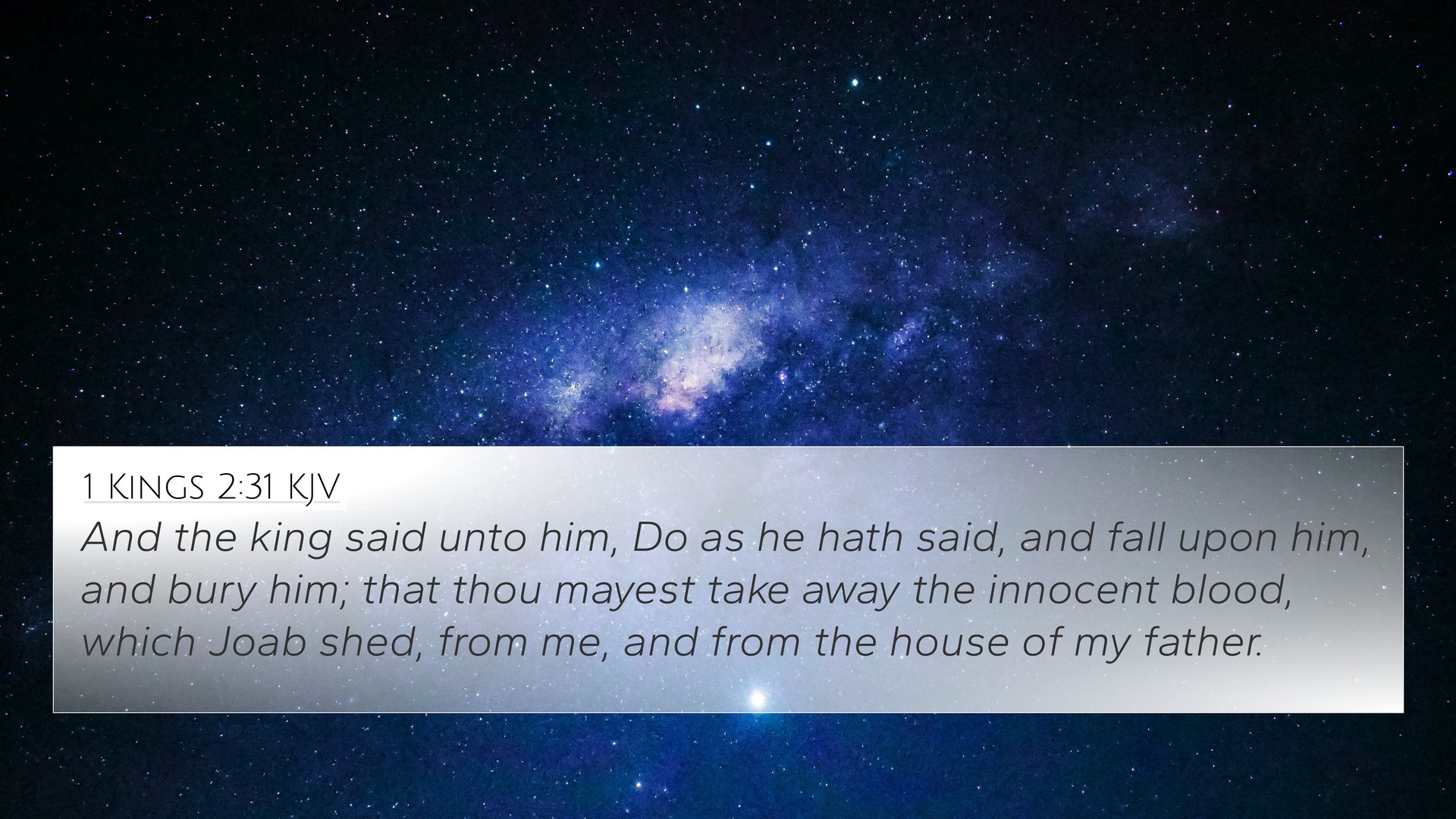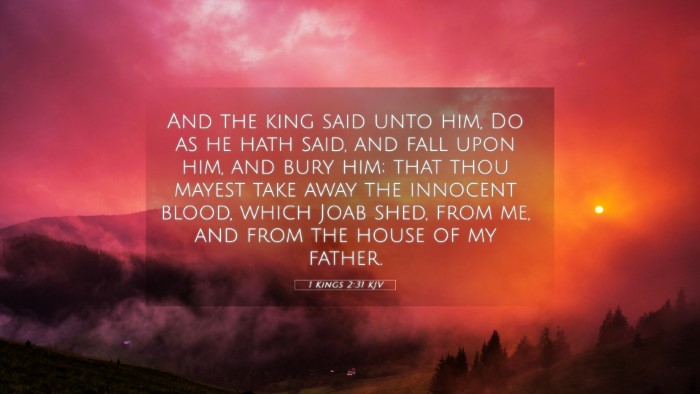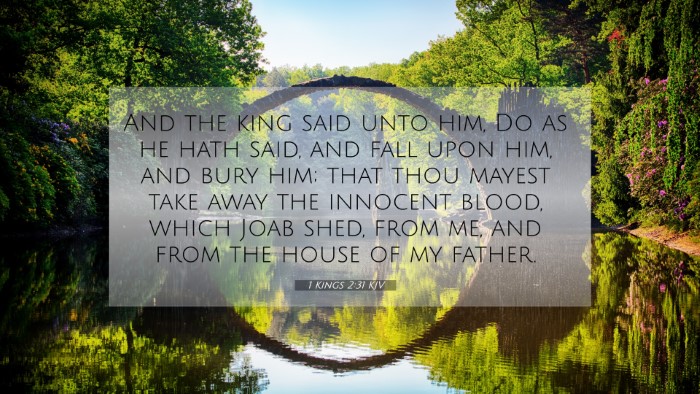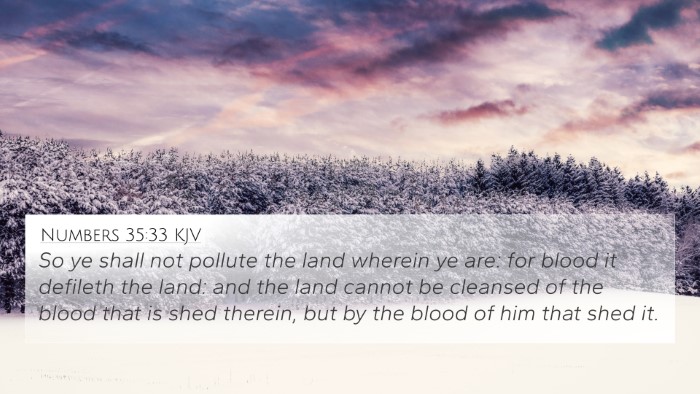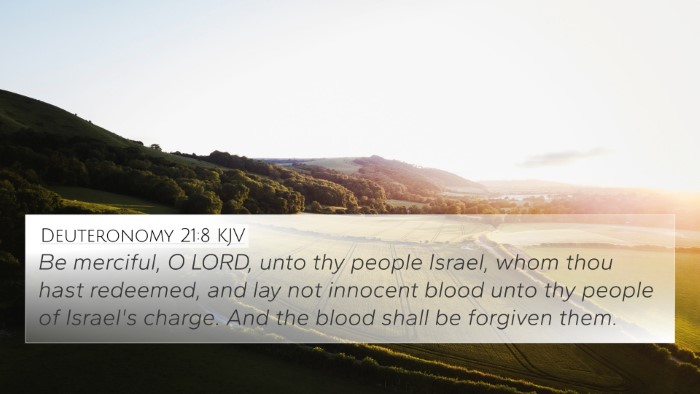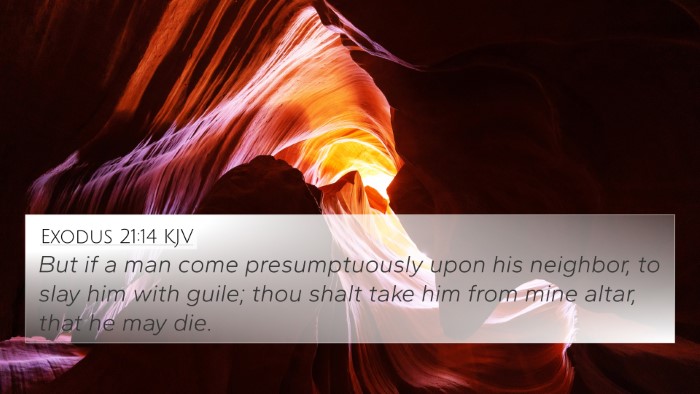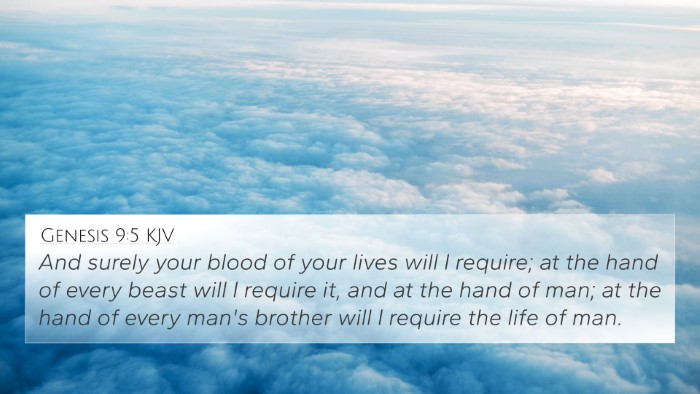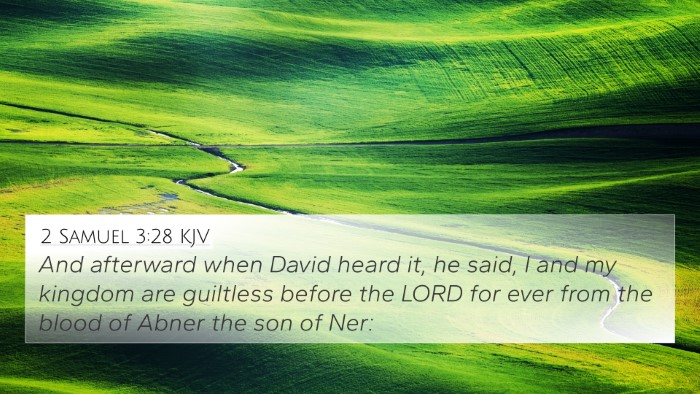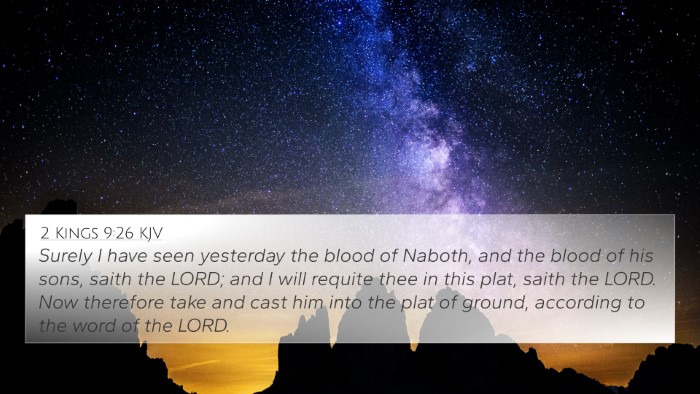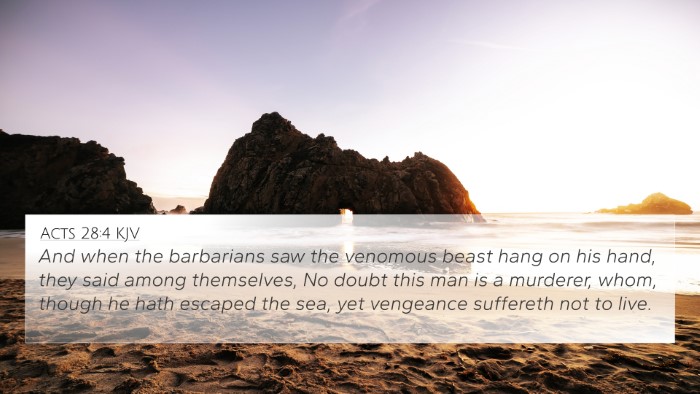Understanding 1 Kings 2:31
1 Kings 2:31 states:
"And the king said, Do as he hath said, and fall upon him, and bury him; that thou mayest take away the innocent blood which Joab shed, from me, and from the house of my father."
Verse Meaning and Insights
This verse occurs in a context where King Solomon is addressing his servant Benaiah concerning Joab, a man guilty of heinous crimes, specifically murder. The following insights summarize the meaning of this passage as derived from public domain commentaries:
-
Matthew Henry's Commentary:
Henry emphasizes that Solomon's command reflects the necessity of justice. Joab’s blood guilt not only implicated him but also brought a curse upon the monarchy. By ensuring Joab's punishment, Solomon aimed to cleanse his reign from the stains of previous injustices.
-
Albert Barnes' Notes:
Barnes notes that Solomon's actions demonstrate the principle of holding leaders accountable for their actions. Joab's transgressions were too severe to go unpunished, marking a pivotal transition in the Davidic dynasty’s governance that prioritizes righteousness.
-
Adam Clarke's Commentary:
Clarke points out that Solomon is now consolidating his power and authority as king. Executing Joab is part of establishing a just rule, reverberating themes of judicial sovereignty found throughout the scriptures. Such actions underscore the Divine ordinance of laws and their enforcement.
Bible Verse Cross-References
To fully appreciate the gravity of 1 Kings 2:31, we can identify several Bible verses that provide thematic overlaps and support the principles discussed:
- 2 Samuel 3:27: Describes Joab’s murder of Abner, showcasing his pattern of treachery.
- 2 Samuel 20:10: Chronicles Joab's treason again and his readiness to kill even in the context of Israel's unity.
- 1 Kings 2:5: Solomon remembers and acknowledges Joab’s sins as he prepares to reign, emphasizing continuity within scripture.
- Nahum 1:3: Highlights God’s vengeance against unjust acts, underlining the divine retribution theme that resonates with Solomon's action.
- Romans 13:3-4: Discusses the responsibilities of governing authorities to execute justice, effectively echoing Solomon's motives.
- Micah 3:1-3: Condemns leaders who act unjustly, linking back to the moral obligations of kings like Solomon.
- 1 Peter 2:14: Affirms that rulers are sent for punishment, echoing scripture’s insistence on the need for accountability.
Thematic Bible Verse Connections
In examining 1 Kings 2:31, we can draw significant connections to broader biblical themes:
-
Judgment and Justice:
Both Old and New Testament scriptures illuminate God's commitment to justice. Solomon's act reflects divine principles outlined in both Testaments.
-
Leadership Accountability:
Scriptural references emphasize the vital importance of righteousness among leaders, a theme prevalent from the books of the Kings to the epistles of Paul.
-
Blood Guilt:
References that touch on the implications of bloodshed remind us of the seriousness of sin and the call for repentance.
Tools for Bible Cross-Referencing
As we study 1 Kings 2:31, we recognize the value of tools available for cross-referencing scripture, including:
- Bible concordance for thematic studies.
- Cross-reference Bible study tools.
- Comprehensive Bible cross-reference materials to deepen understanding and connect verses.
Conclusion
1 Kings 2:31 invites us into a broader conversation about justice, leadership, and divine accountability within scripture. By utilizing tools for cross-referencing and exploring inter-Biblical dialogue, we can uncover the profound connections that enrich our understanding of this verse and its implications for both past and contemporary audiences.
